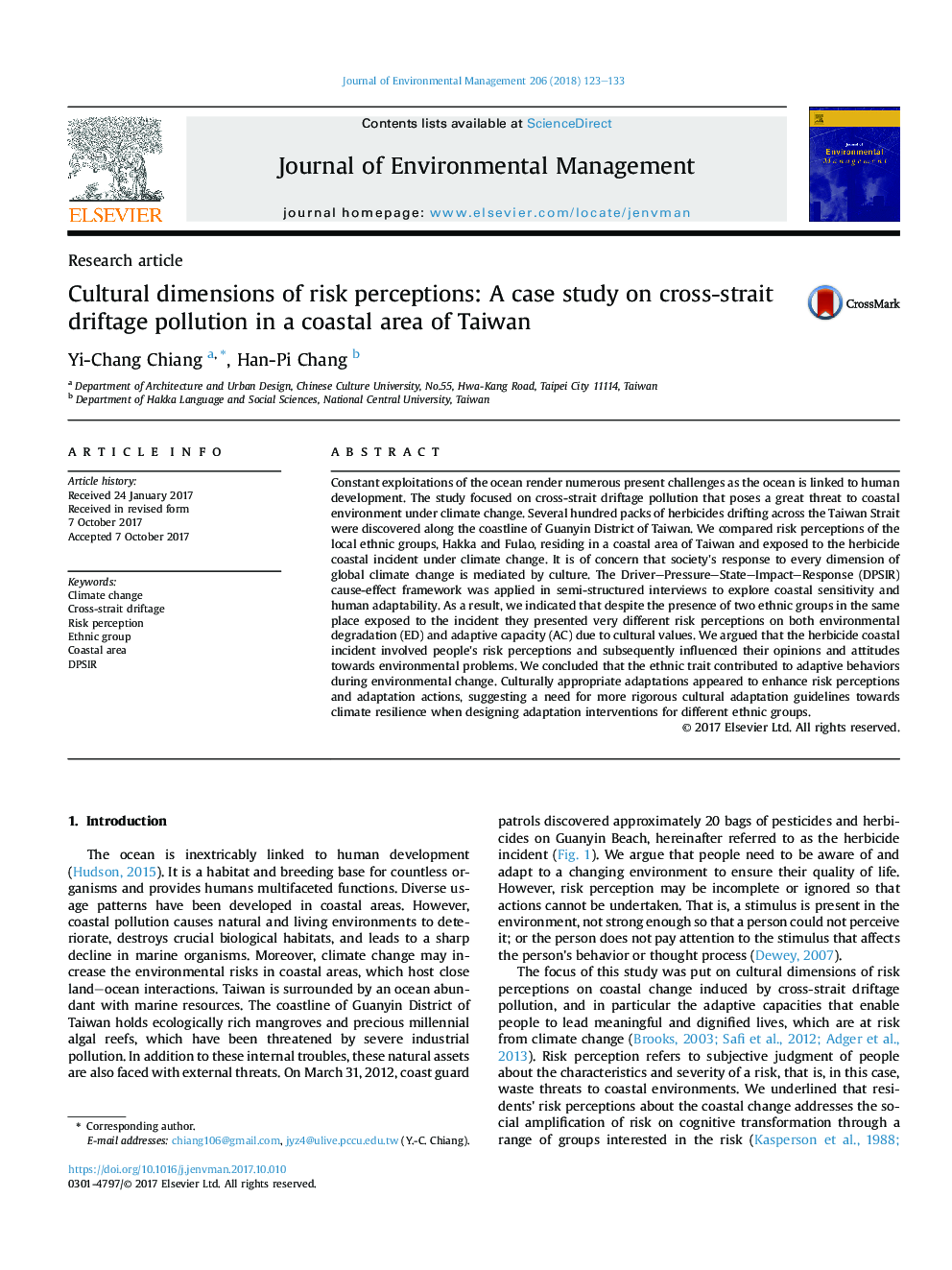| Article ID | Journal | Published Year | Pages | File Type |
|---|---|---|---|---|
| 7478643 | Journal of Environmental Management | 2018 | 11 Pages |
Abstract
Constant exploitations of the ocean render numerous present challenges as the ocean is linked to human development. The study focused on cross-strait driftage pollution that poses a great threat to coastal environment under climate change. Several hundred packs of herbicides drifting across the Taiwan Strait were discovered along the coastline of Guanyin District of Taiwan. We compared risk perceptions of the local ethnic groups, Hakka and Fulao, residing in a coastal area of Taiwan and exposed to the herbicide coastal incident under climate change. It is of concern that society's response to every dimension of global climate change is mediated by culture. The Driver-Pressure-State-Impact-Response (DPSIR) cause-effect framework was applied in semi-structured interviews to explore coastal sensitivity and human adaptability. As a result, we indicated that despite the presence of two ethnic groups in the same place exposed to the incident they presented very different risk perceptions on both environmental degradation (ED) and adaptive capacity (AC) due to cultural values. We argued that the herbicide coastal incident involved people's risk perceptions and subsequently influenced their opinions and attitudes towards environmental problems. We concluded that the ethnic trait contributed to adaptive behaviors during environmental change. Culturally appropriate adaptations appeared to enhance risk perceptions and adaptation actions, suggesting a need for more rigorous cultural adaptation guidelines towards climate resilience when designing adaptation interventions for different ethnic groups.
Related Topics
Physical Sciences and Engineering
Energy
Renewable Energy, Sustainability and the Environment
Authors
Yi-Chang Chiang, Han-Pi Chang,
